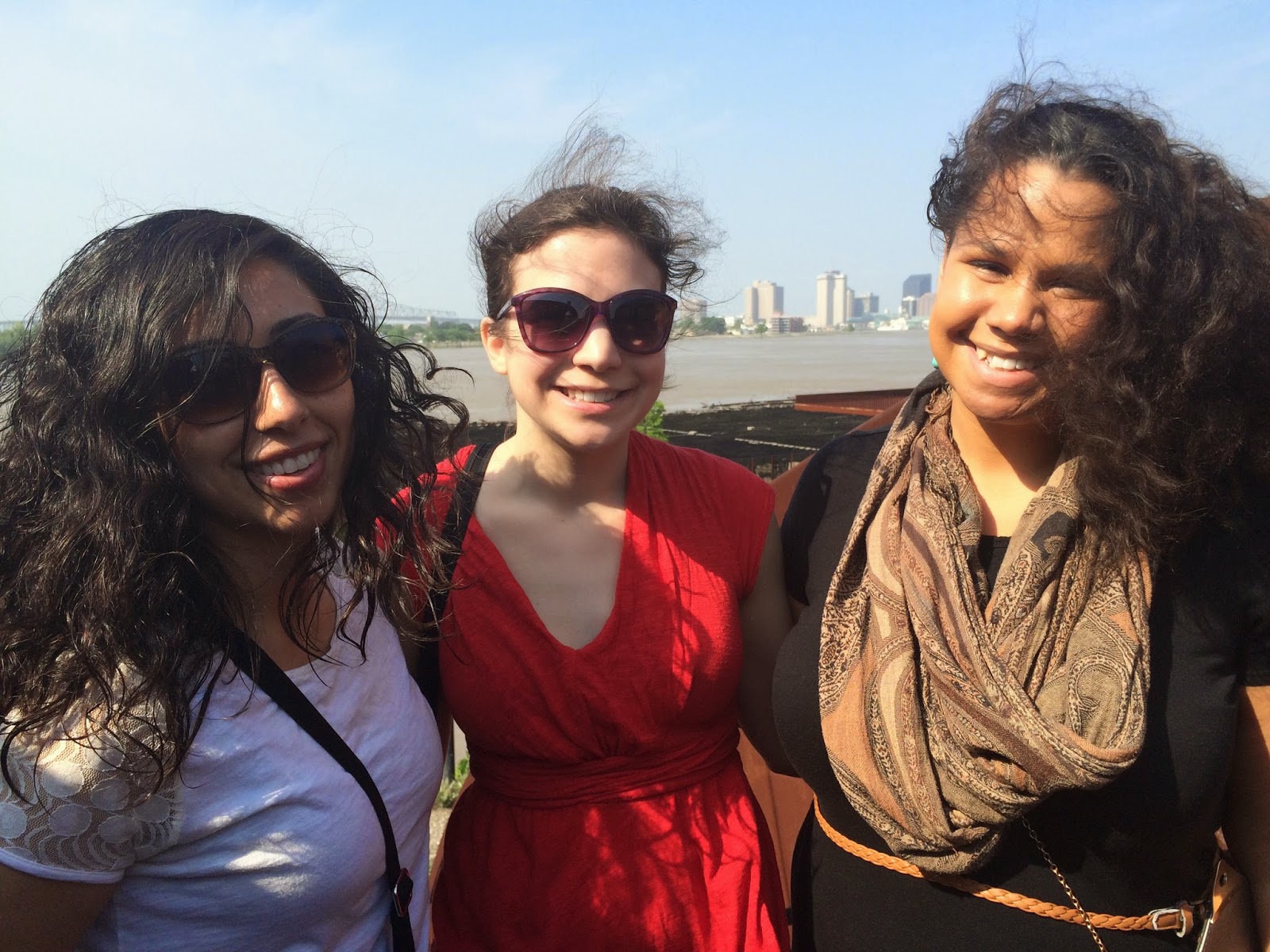After we got to the region, a lot of the staff laughed and told stories of running out of gas on that road because of not filling up their tank before heading out. The first night there we had dinner on the Rio Grande:
And we hung out with our colleague and her twin babies:
 |
| You can see the other baby in the background. |
 |
| This fed 4 people and cost about $15. |
The twins' mom works with us, and her husband works for homeland security, so on our last day he took us out to the border.
It was a weird place to be - it was beautiful with the river and all the trees, but that beauty was criss-crossed by a ton of electrified, barbed-wire fences all over the place. It was cool to stand with a foot in each country, but also humbling how easy it was for us to hop back and forth over that arbitrary line while so many people die trying to cross it each year. When my (Black) colleague and I were driving back North we got waved through the checkpoint, but when she went through it earlier this year with a Latina friend they were stopped, searched, and grilled for a long time before being allowed to pass. I know I always have white privilege, but it was painfully acute there.
Wednesday after work we drove back to San Antonio and met up with another friend. We were only there for a night, but we ate some killer food.
|
|
We ate a bunch of other great food that night, but those were definitely the best. I don't even usually like oysters, but I could have eaten that whole pan by myself.
This morning we went to an awesome breakfast spot, where we had PRALINE BACON and really excellent fried green tomatoes:
We also had a "french toast burrito" (a breakfast burrito where the tortilla had been given the french toast treatment beforehand), a cornbread waffle with sweet potato and roast duck on top, and an egg/cabbage/sausage extravaganza with an ocean of grits:
We walked around some more to try and walk off the food coma before heading to the airport to return home. It was a great week, and now I am done all my eating for the rest of April.










